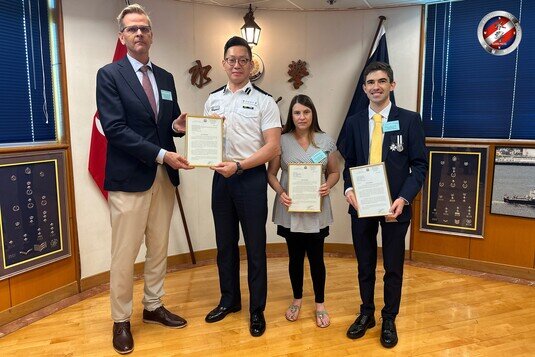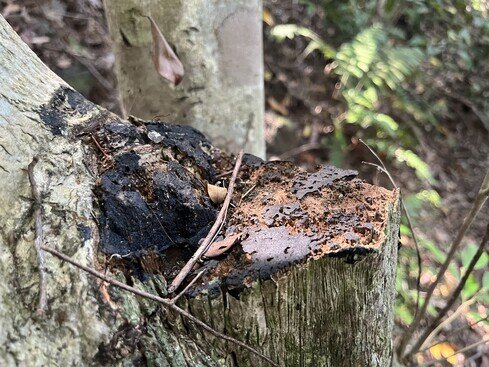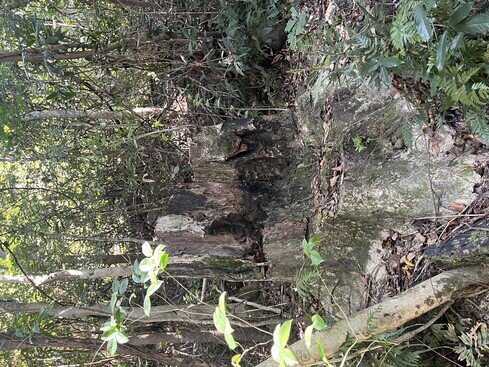Bridging Science and Society: The Impact of Forensic Technology on Environmental Protection
In a landmark collaboration, researchers from the University of Hong Kong (HKU) and the Hong Kong Police Force have successfully dismantled an illegal agarwood trafficking gang, highlighting the vital knowledge exchange between academia and law enforcement. This case illustrates the power of scientific expertise in combating environmental crimes and emphasises the broader social implications of such partnerships.
The Collaboration
In December 2024, HKU's School of Biological Sciences (SBS) played a crucial role in a police investigation into illegally harvesting Aquilaria sinensis, a vulnerable and protected species. The scientific work was conducted by Dr Kerry Reid, Dr Arthur Sands, Dr Astrid Linnea Alexandra Andersson, and Dr Weixuan Ning, under the guidance of Professor Juha Meriläe. Utilising innovative biological identification techniques, the HKU researchers provided critical evidence that directly linked suspects to their illicit activities. The collaboration culminated in the arrest of 13 individuals, with ten subsequently convicted, receiving sentences ranging from 30 to 50 months in prison.
This case marks a significant milestone in integrating scientific research into law enforcement practices. Detective Kwan Ka Ki, Senior Inspector of the Regional Crime Unit, noted the essential role of HKU's technology in enhancing the effectiveness of police investigations. This strategic partnership brought offenders to justice and set a precedent for future collaborations to preserve biodiversity.
Professor Meriläe’s Forensic Technology
Professor Juha Meriläe, Associate Director of the Area of Ecology and Biodiversity at HKU, was at the forefront of this initiative. His team’s innovative forensic technology has been recognised in previous media coverage for its ability to accurately identify species and establish connections between illegal activities and their ecological impacts. This technology employs advanced genetic analysis techniques to provide irrefutable evidence in environmental crime cases.
In earlier reports, Professor Meriläe emphasised the importance of integrating scientific knowledge with law enforcement. "By combining our biological expertise with the police's investigative skills, we can more effectively combat organised environmental crime," he stated. This sentiment was echoed during various symposiums and public discussions on biodiversity conservation, where he highlighted the need for collaborative approaches in tackling complex ecological challenges.
While Professor Meriläe expressed a desire to share more details about the science behind this case, he emphasised that the HK Police Force has requested that specifics remain undisclosed to prevent criminals from taking preventive measures that could complicate future investigations. This is the first time such scientific evidence has been used in Hong Kong courts to prosecute wildlife crime cases.
Empowering Communities through Knowledge Exchange Initiatives
The collaboration between HKU and the Hong Kong Police Force exemplifies a successful model of knowledge exchange that extends beyond the confines of academia. By translating scientific research into practical applications, the partnership has not only facilitated immediate action against environmental crimes but also fostered a broader awareness of the importance of biodiversity conservation.
Incense trees hold significant historical value in Hong Kong. The name "Hong Kong" roughly translates to "Fragrant Harbour," a nod to the significant historical trade of fragrant wood from these trees through the port of Hong Kong. Remarkably, Hong Kong still retains one of the best remaining wild populations of these trees in the broader region, as the long-standing demand for various religious and cultural uses has largely exhausted wild populations in Mainland China and surrounding areas. As such, Aquilaria sinensis is as significant to Hong Kong as Blake's Bauhinia (the flower depicted on the Hong Kong flag), yet it remains highly threatened. Hong Kong acts as a haven for this species.
Many conservation groups in Hong Kong strive to protect these trees, recognising their essential connection to the region. Moreover, it is notable that the poaching of these trees was reported to the police by local citizens—ordinary Hongkongers who understood the significance of these trees and took the initiative to report such cases. Prof Meriläe, Dr Reid, and other community members were honoured by the Hong Kong Marine Police with letters of appreciation, highlighting that this effort is a team endeavour that extends from local communities to law enforcement and high-level academia.
This exchange of knowledge has significant social implications. The successful prosecution of the agarwood traffickers sends a strong message about the legal repercussions of environmental crimes, thereby deterring future offenders. Furthermore, it enhances public awareness about the importance of protecting endangered species and the role that scientific research can play in this endeavour.
In addition to immediate legal outcomes, the collaboration has the potential to influence policy changes. As authorities recognise the effectiveness of using scientific evidence in prosecuting environmental crimes, there may be a shift towards more stringent regulations and enforcement mechanisms. This could lead to more robust protection for vulnerable species and habitats, ultimately benefitting the ecosystem as a whole.
Exploring New Directions for Improvement
The success of this collaboration underscores the need for ongoing partnerships between academic institutions and law enforcement agencies. Looking ahead, HKU and the Hong Kong Police Force are committed to expanding their cooperative efforts to address cross-border environmental crimes. This includes the potential for joint training programmes, where police officers can learn to effectively use forensic techniques, thus enhancing their capacity to investigate and prosecute environmental offences.
This partnership also showcases HKU's commitment to addressing societal issues, particularly in curbing wildlife crimes. The HKU Conservation Forensics team has a long history of assisting the Hong Kong Special Administrative Region (HKSAR) government in related cases. Furthermore, much of the research conducted at HKU’s School of Biological Sciences aligns with the UN’s Sustainable Development Goals, reinforcing the university's role in global conservation efforts.
Moreover, the integration of citizen science initiatives can further amplify the impact of these collaborations. Engaging the public in conservation efforts, such as reporting illegal activities or participating in biodiversity monitoring programmes, can create a more informed and proactive community. This grassroots approach, combined with scientific rigour, could significantly enhance conservation efforts and promote a culture of environmental stewardship.
Conclusion
Looking ahead, HKU and the Hong Kong Police Force are committed to expanding their cooperative efforts to address cross-border environmental crimes. They are actively engaging with the Agriculture Fisheries and Conservation Department (AFCD), Hong Kong Customs, and local NGOs to research various aspects of ecological crimes. This includes developing new methods and approaches to uncover and identify illegal trafficking of wildlife and wildlife products.
The continued integration of science and society will safeguard our planet’s precious natural resources. The collaboration between HKU and the Hong Kong Police Force is a powerful example of how knowledge exchange can lead to tangible social impact, demonstrating the importance of leveraging scientific research to inform law enforcement strategies in the fight against environmental crime.




